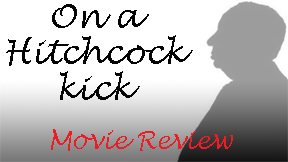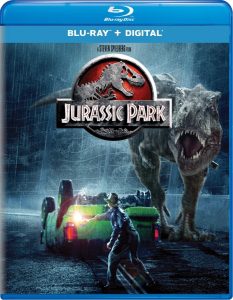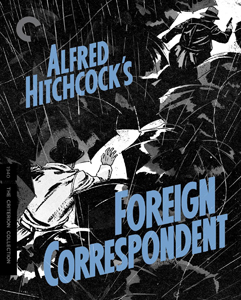“Foreign Correspondent” (1940) is one of the “underrated” Alfred Hitchcock movies. But when a body of work is so thoroughly scrutinized, it’s hard to find hidden gems. This epic propagandic thriller from a time when England is close to declaring war on Hitler is underrated for appropriate reasons.
It’s oddly engaging through its 2 hours, even though I couldn’t come close to telling you the scheme of the villains by the end. I don’t even know if title character John Jones (pen name Huntley Haverstock) (Joel McCrea) could outline it.
Part of the point is that he doesn’t have to. His editor at the New York Globe purposely picks Jones for the job because he knows nothing about the details of the buildup to World War II. Jones will just use his reporter’s instincts to gather information; the editor can then sort it out.

“Foreign Correspondent” (1940)
Director: Alfred Hitchcock
Writers: Charles Bennett, Joan Harrison, James Hilton
Stars: Joel McCrea, Laraine Day, Herbert Marshall
That’s sort of what happens, but – even though Hitchcock’s secondary theme (after shining a Pollyanna light on the USA as the last hope for democracy) is the heroism of reporters – John Jones is a reporter in the same way Indiana Jones is an archeologist.
Some thrilling set pieces
This is not a journalism movie in the sense that, say, “Spotlight” is a journalism movie. It’s also not quite an action movie by today’s standards of the term (it spends a higher percentage of time on the political stuff), but one can see parallels to 21st century “Mission: Impossible” films.
Jones climbs a ledge from one hotel room to another, finds himself atop a London skyscraper with a murderous companion, evades bad guys inside a windmill with dangerous gear wheels, and struggles to survive an Atlantic Ocean plane crash that must’ve been exciting in 1940 and still holds up.
“Foreign Correspondent” starts with touches of dry humor. Hitchcock perhaps senses that the love match between Jones and Carol (Laraine Day), daughter of important politician Stephen (Herbert Marshall), is convenient. Jones confesses his love, Carol says the same, and Jones notes that it sure makes this love scene easy, like he knows he’s in a movie.
The film also gets chuckles from the unusual last name of George Sanders’ character, Scott ffolliott, a likable ally to Jones and Carol. Despite the two lowercased letters, it’s pronounced with a “Fuh,” he explains.
But later, the movie features torture of a kind old man – the plot’s human maguffin. The film nonetheless was approved by ratings boards around the world; I guess this was a tense and confused time for them, too.
Ambitious in scope, short on details
This is one of Hitch’s most ambitious entries in scope and layers, but it remarkably maintains a throughline most of its way, as we follow Jones. The plot loses him at the start of the third act, but the clever way in which he gets the story back to his editor in New York gives him the requisite closing ingenuity and heroism.

It’s one of the director’s most confused films in terms of theme, as it’s not remotely interested in real-world journalism yet it lauds journalists. And it digs into the behind-the-scenes politics that lead up to WWII yet the details are hard to follow and possibly beside the point.
It presents the USA as the world’s last potential savior – ending with the Star-Spangled Banner — purely as a notion, not with anything presented in the story itself. (In the real world, the Pearl Harbor attack happened two years later.)
“Foreign Correspondent” was hyper-timely in 1940, then perhaps lost relevancy during the period of WWII historical analysis because it’s a fictional rather than factual story of the war buildup. By the time the film itself had become historical, Hitch had made his canonical classics.
Hence, the “underrated” status tracks. Watch “Foreign Correspondent” as a formative action thriller. But don’t stress the details. And try to resist rolling your eyes at the themes Hitchcock embraces with all his heart yet can’t quite communicate via the story itself.
RFMC’s Alfred Hitchcock series reviews works by the Master of Suspense, plus remakes and source material. Click here to visit our Hitchcock Zone.

